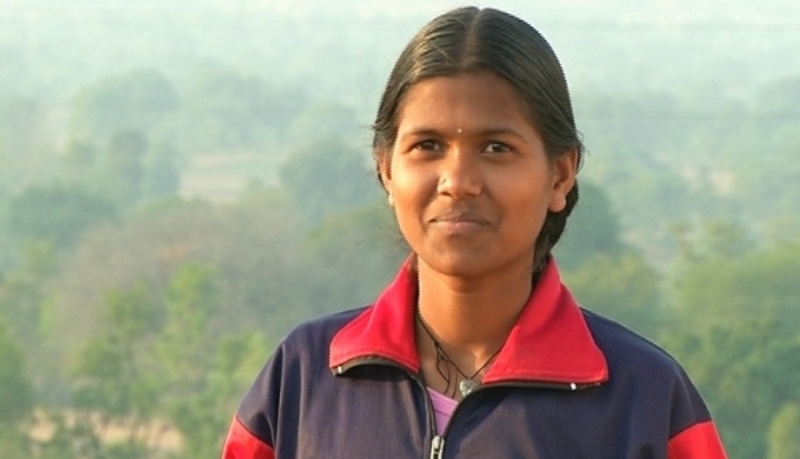The film ‘Poorna’ is the biography of a now 17 year old Poorna Malavath. At the age of 13 years 11 months, Malavath was the youngest girl to reach the highest summit of Mount Everest. Rahul Bose has not only produced the film, but directed and acted in it as well. This film has significant social importance because Malavath hails from a tribe in Telangana. In a caste-ridden and patriarchal India, this film is a double whammy in the face of the aforementioned. Aditi Inamdar is the actress who has essayed the role of Malavath in the film.
SheThePeople.TV quoted Malavath’s inspiring thoughts, “We don’t have reverse gears. The sky is the limit. That’s the motto.” Coming from a poverty ridden family, scaling Mount Everest gave her life not only a mission but also that platform which she could use to change her life. Sometimes one can’t wrap their head around the link between poverty and the importance of nurturing a passion. Upon self-introspection, one realizes that passion is the only thing one can build life on. This reminds me of Rio Olympics 2016 where Refugee Olympic Team participated in the Torch Relay sport. Passion brings out the best in a person. That in turn, brings in hope… of a life one really wants.


Malavath reportedly broke down after watching the film, “Seeing the movie, I really broke down and I think it’s just superb, fantastic, mind-blowing and unbelievable… I remembered my journey.” Rahul Bose must have been happy at her approval.
Indian media and popular culture have been greatly scrutinized and gender perceptional patterns have been deduced. As a country, we are far behind the gender emancipation curve. Section 377 criminalizes homosexuality as sexual intercourse in that union is “against the order of nature”. Honor killings over love marriages and alliances are common. Arranged marriages and ingrained communalism are still the norm. Sex as a concept generates vicarious reactions which is ironical because India has high prevalence of sexual violence. Owing to the historical deprivation of health, education and opportunities, poverty has been created and it has in turn, created many hurdles in the path to societal progress. Over a period of decades, media representation of gender and sociological concepts has reflected and at the same time created conflicting cultural norms.
Movies are stories and stories give hope. Movies emphasize on poetic justice where good triumphs over evil. Films like Poorna, Mary Kom and Dangal are not only real life stories which indeed reiterate the aforementioned message but it also creates visual gallery in the hearts of the viewers. At times when one is at cross-purposes with self and life, it is the visual gallery that flashes and shows the way. Movies optimize on that human quality. Had that not been the case, Shahrukh Khan’s famous lines from Chak De! India, “sattar minute… sattar minute hai tumhare pass”, would not have landmined a path where there was none. These are the paths of hope and of giving one’s 100 percent to life each moment in order to create a glorious future.




